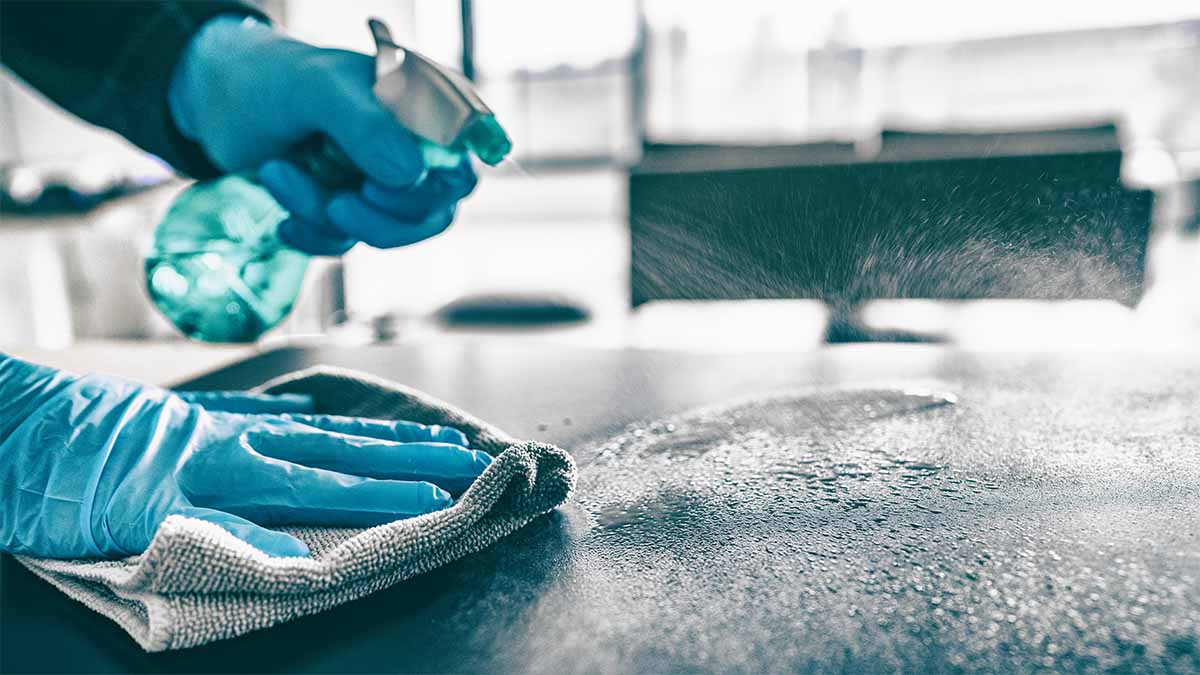
Covid may be spread via surfaces after all, study argues

After often fierce debate during the pandemic, a consensus emerged that Covid-19 is predominantly transmitted through the air. But new research has highlighted how it may also be spread via people’s hands and frequently touched surfaces.
The Imperial College London-led research focused on transmission within households but can just as easily be applied to surface-based transmission within the workplace.
It has argued it is the first to link the presence of Covid-19 on people’s hands and frequently touched surfaces to the risk of infection among contacts.
It has also emphasised the benefits of handwashing, regular surface disinfection, and physical distancing as well as the use of masks to curb the spread of the virus.
The study of 279 households in London, published in The Lancet Microbe, was conducted at the height of the pandemic during the alpha and pre-alpha waves.
The research was carried out at the National Institute of Health and Care Research (NIHR) Health Protection Research Unit (HPRU) in Respiratory Infections, a research partnership between Imperial College London and the UK Health Security Agency (UKHSA).
After accounting for other potentially influential factors such as sex, vaccination status, underlying illnesses, and contacts’ relationship to the primary case, the researchers found that, if the virus was detected on primary cases’ hands, then contacts in their household were 1.7 times more likely to get infected than those in households where primary cases did not have the virus on their hands.
Among the contacts who were initially uninfected but became infected with Covid-19 during the study, six had positive hand or household surface swabs prior to becoming infected.
This, the researchers argued, supported the directionality of transmission being from household surfaces and contacts’ hands to their nose and throat.
Whole-genome sequencing of the 25 primary cases and their respective contacts where this was possible confirmed that each primary case-contact pair was infected with the same Covid-19 strain, confirming household transmission between primary cases and their respective contacts.
However, there were some important caveats. The researchers noted that this was an observational study and as such could not prove causation. Moreover, since household air was not systematically sampled, airborne transmission could also not be ruled out.
Nieves Derqui, lead author for the study, from Imperial College London’s NIHR HPRU in Respiratory Infections, said: “In houses in which we found the virus on surfaces and the hands of participants, infection among contacts, and thus transmission, was significantly higher.”
Professor Ajit Lalvani, chair of infectious diseases at the National Heart & Lung Institute, added: “Our new understanding of the pathways of household transmission now enables us to prioritise simple measures to interrupt spread of the virus. Our data strongly suggest that as well as frequent handwashing, decontamination of frequently touched surfaces could prevent transmission.”
Stay connected with us on social media platform for instant update click here to join our Twitter, & Facebook
We are now on Telegram. Click here to join our channel (@TechiUpdate) and stay updated with the latest Technology headlines.
For all the latest Health News Click Here
For the latest news and updates, follow us on Google News.

